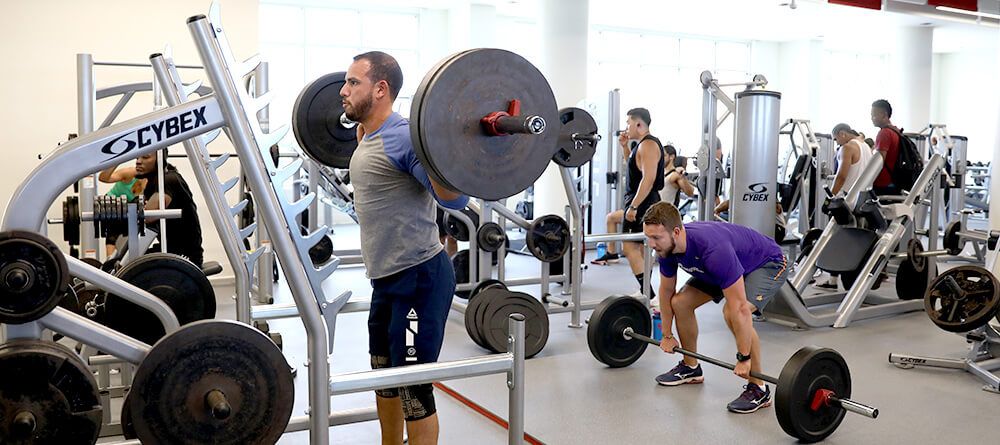Even pre-med students who spend a significant amount of time preparing for the first day of their MD program are going to have some questions. It’s common to wonder, “What is medical school like?”
To remove some of the mystery, third-year St. George’s University Med School(SGU) student Giavanna Verdi is sharing some insight into what a typical medical school schedule is like for a first- or second-year student living on campus. Because she has a few years under her belt, Verdi’s perspective is incredibly useful for those who are eager to move from the medical school application process to the enrollment phase.
What is medical school like? A day in the life of a medical student at SGU
While your routine will likely be a bit different than Verdi’s, her experience can help you understand what a typical medical student schedule involves for someone who hasn’t entered the clinical rotation phase of their education.
Getting a head start in the morning
A self-proclaimed early bird, Verdi typically rose around 5 am to head to the gym during her first two years of medical school. After a 45-minute workout, she would return to campus housing to clean up and make something to eat. She’s a firm believer in starting the day with a morning meal, and she also used that time to prepare for the day.
“As I was eating breakfast, I would look over lectures for that day by watching videos, reading textbooks, or going through my own handwritten study guides,” Verdi elaborates.

Beginning the school day
Whether you start out in labs or lectures can vary, but assume you’re beginning with lectures. You’ll have a few each day. The basic sciences curriculum is systems based, meaning courses focus on groups of organs that work together. You’ll learn about the typical structure and function of the cardiovascular, renal, and other organ systems.
“Lectures are somewhat interactive, because you will have clicker questions at the beginning and end,” Verdi explains.
Instructors like to engage students as much as possible during class. Incorporating real-time questions can help you digest the material and also get you in the test-taking frame of mind. There are traditional quizzes as well.
“I have found these to be super helpful for exam questions.”
“I found these to be super helpful for exam questions,” Verdi says. SGU’s quizzes are designed to help students prepare for larger exams in school, which take place once every several weeks, as well as the United States Medical Licensing Examination (USMLE) tests.
Taking a break for lunch
Verdi usually planned ahead for her meals to make the most of free time.
“I typically tried to make food at home and bring it with me in a microwavable container to the study halls to eat as I worked,” Verdi says.
Refocusing for the afternoon
If your morning is filled with lectures, your afternoon will be structured differently. In the anatomy lab, students work with human cadavers to start identifying structures. Verdi found it helpful that instructors were always available to answer questions during labs.
Typical days also involve interactive, multiple-choice question (IMCQ) sessions—workshops that test your understanding of the material alongside classmates—and small group sessions. Much of the learning SGU students do takes place in small groups of about eight students, which are run by a clinical facilitator and vary based on topics being covered in that module.
“They mostly include histology slide presentations, discussion of case reports and articles, physical examinations and ultrasound practice sessions with standardized patients, and pharmacology workshops,” Verdi offers.
Wrapping up the day with extracurriculars or a study session
While the actual school day might be done at this point, expect to spend a fair amount of time studying for medical school classes each weekday. Verdi typically made use of the great spaces around campus when reviewing material.
“After a long day of classes, I would go to the open group study areas— particularly the brand new Andrew Belford Hall—to meet up with my friends to study,” she shares.

Many student organizations also hold meetings and events later in the day. Verdi, for her part, has been involved in everything from the Medical Student Research Institute to the St. George’s University Interest Group in Genomics. Those are just a few options, too. There are sports teams and organizations for nearly every interest, and Verdi encourages future students to participate.
“It is not only a productive way to take a break from your studies, but it can also help you form connections with other students and faculty members,” Verdi elaborates.
Getting ready to recharge
When you finally return home for the day, you will likely spend some time reviewing any material you weren’t able to get to earlier in the day. You may even have a bit of time to watch a few of your favorite TV shows. But it’s a good idea to prioritize rest as much as you can. Verdi typically went to bed around 9:30 pm during her basic sciences years.
“I strongly believe in the power of sleep to succeed in medical school,” she enthuses.
And if it was an exam day? Allow yourself some time to relax.
“It is very important to give your brain some rest, so you can pack it with more information coming up,” Verdi says.

Complete the final phase
So what is medical school like? Hopefully, you now have a better understanding of what an MD program entails. Still have some questions? Check out our social media ambassador takeover series to hear more about what life is like for a medical student—whether you’re learning at home, on campus, or completing clinical rotations.
– Folarin Adeyemi
– Adam Lerman
– Jessica Rebaza
Next, figure out which program to attend. Find out how to determine which institutions are right for you by reading “How to Choose a Medical School: 9 Things to Evaluate Before Accepting.”
Next, figure out which program to attend. Find out how to determine which institutions are right for you by reading “How to Choose a Medical School: 9 Things to Evaluate Before Accepting.”
*This article was originally published in September 2019. It has since been updated to include information relevant to 2021.


